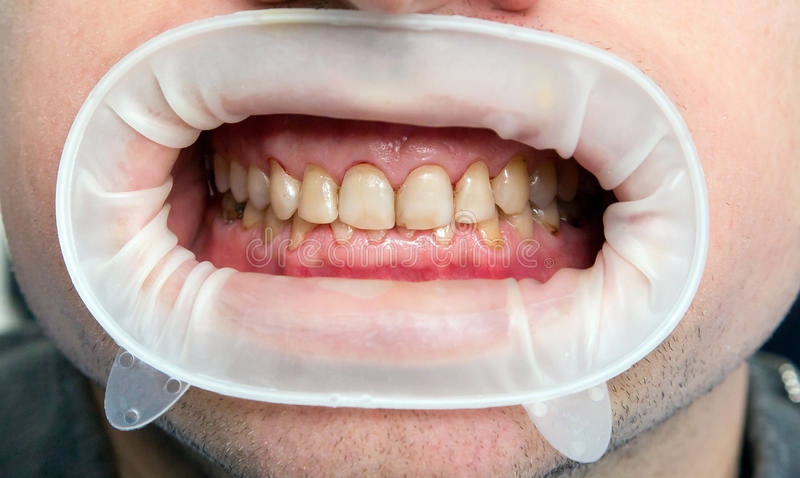Coffee, tea and alcoholic beverages are called preference beverages and are consumed on a regular basis and in huge amounts. In this way, there is a high chance that the contained components bring about a health hazard, and the risk assessment of the intake of these beverages is very imperative.

Does it seem like fluoride has found its way into numerous things, but is there fluoride in coffee?
The beverage that millions in every corner of the world depend on regularly to kick start their day has fluoride?
Sadly, there is not enough data about it but, we are here to be your knight in shining armor and help you figure it all out.
Why do people consume coffee, and what are the benefits of coffee?
BOOSTS MEMORY

Alzheimer’s disease is the maximum commonplace neurodegenerative disease and the leading reason for dementia. This situation commonly impacts people over 65, and there is no known remedy. People who suffer from Alzheimer’s often end up in retirement homes or with a full-time nurse. The most that can be done for them is to make them comfortable. There are many retirement homes that offer a mental health wellness program, but it’s only a managing solution, not a cure. However, there are numerous things you could do to prevent the disease from happening inside the first location. This consists of the usual suspects like eating wholesome and exercising, but drinking black coffee may be particularly effective as well.
Several kinds of research have depicted that coffee drinkers have up to a 65% lower hazard of Alzheimer’s ailment. It helps in keeping people active and boosts memory.
IMPROVES PERFORMANCE DURING WORKOUT
One of the biggest winnings of drinking black coffee is that it helps you to improve your performance during workouts remarkably and helps you to give your best during your workout sessions. Coffee increases epinephrine (adrenaline) levels in the blood, which prepares your body for intense physical labour. It also breaks down stored body fat and releases fat cells into the bloodstream in the form of free fatty acids, which can be used as fuel for strenuous physical activities.
DETOX
Coffee is said to be a diuretic libation. Thus, it makes you pee more and more. Thus, when you drink black coffee without sugar, all the toxins and bacterias are flushed out of your body in the form of urine, which cleanses your stomach.
WEIGHT LOSS
As coffee increases the epinephrine level in the blood, you are likely to work out more and with ease. Not only that, black coffee helps in fast weight loss by making you work out more when you have it 30 minutes before you hit the gym. If your new year’s resolution is to lose weight, then you might want to consider getting yourself a coffee maker (perhaps one of the models from Miele cofee makers) so that you don’t have to buy coffee from a store every day.

Black coffee facilitates to reinforce metabolism through approximately 50 per cent. It additionally burns the fat inside the tummy, considering it’s a fat-burning beverage. That said, in its nature, coffee seems to resemble Shredded AF, a fat burner supplement, which can boost metabolism and suppress cravings. That is why people who are not much into caffeine often use the above-mentioned supplement as an alternative.
COFFEE CONTAINS ESSENTIAL NUTRIENTS AND ANTIOXIDANTS

A single cup of coffee is a powerhouse of nutrients and antioxidants. Black coffee contains nutrients like:
- Pantothenic Acid (Vitamin B5)
- Riboflavin (Vitamin B2)
- Niacin and Magnesium (Vitamin B3)
- Magnesium and Potassium
REDUCES THE RISK OF DIABETES
Drinking black coffee helps in reducing the risk of diabetes that cause organ damage and heart diseases. Type 2 diabetes is the most common one that has been affecting a lot of people worldwide. It is characterized by elevated sugar levels in the blood caused by resistance and reduced ability to secrete insulin. But studies show that people who consume black coffee have a significantly lower risk of being affected by type 2 diabetes.
REDUCED RISK OF PARKINSON’S
After Alzheimer, Parkinson’s is the second most common neurodegenerative condition. It is caused when the dopamine making-cells die. Dopamine is a brain chemical that helps the nerve cells to communicate, and as the dopamine cells die, the brain does not receive the necessary information on how to move or when to move.
Studies show that coffee drinkers have a much lower risk of Parkinson’s disease, with a risk reduction ranging from 32–60%. In this case, the caffeine itself appears to be beneficial, as people who drink decaf don’t have a lower risk of Parkinson’s.
IMPROVES CARDIOVASCULAR HEALTH

Drinking black coffee may indeed increase your blood pressure, but this is just a temporary effect. It diminishes over time. Drinking a cup or two of black coffee helps in improving the cardiovascular system of the body and helps in decreasing the risk of strokes. It also reduces inflammation in the body.
REDUCES THE RISK OF CANCER
It has been proven that everyday consumption of black coffee helps in reducing the risk of cancer. Cancer has been one of the biggest and most common diseases found these days. As black coffee helps in reducing inflammation which is the biggest cause of tumor, the risk of cancer is automatically reduced.
REDUCES STRESS AND DEPRESSION

Depression Too much work pressure and tension can lead to depression and stress, which in turn can cause many serious health issues. Having a cup of black coffee can help you cheer up and be stress-free in case you are having a bad day. Coffee stimulates the central nervous system and increases the production of dopamine, serotonin, and noradrenaline, important neurotransmitters that help to elevate mood.
Does coffee contains fluoride?
Before we get started on whether coffee contains fluoride or not, let us understand the harmful effects of fluoride on human health.

Fluoride is a mineral that is used for dental caries prevention, otosclerosis, and osteoporosis. Fluoride is added to public drinking water to prevent tooth decay. Fluoride is added to toothpaste and mouthwashes as well. Fluoride is also taken by mouth for treating weakened bones (osteoporosis) and for preventing bone loss in people who have rheumatoid arthritis and Crohn’s disease.
Fluoride consumption is not recommended at levels higher than 10 mg per day. Excessive fluoride can create differing results contingent upon the amount of fluoride exposure and regardless of whether it happens chronically, for a longer period of time, or rapidly.
Chronically high degrees of fluoride intake can influence teeth and bone health. In contrast, intense consumption of a lot of fluorides can have more dangerous incidental effects and may even be dangerous.
Persistent Over-Exposure to Fluoride
Dental fluorosis is the most very much end result of overconsumption of fluoride. Likewise, there is some proof that over ingestion of fluoride might increase the danger of creating osteoporosis and having bone fractures.
Fluorosis
Fluorosis can start at whatever age in life. It shows with white spots or white streaks on the teeth since fluoride-incited mineralization can even influence teeth that are developing under the gums.

Fluorosis can influence kids who are exposed to high degrees of fluoride in their toothpaste. Moreover, fluorosis might create an unpleasant texture on the surface of the teeth.
Fluorosis is primarily a cosmetic concern and is not believed to be harmful to teeth. Fluorosis doesn’t cure on its own, and it is extremely challenging to repair. If you foster this disease, be careful of at-home cosmetic medicines, for example, tooth brightening gels or creams, since they can bring on further staining of your teeth. Instead, resort to taking the help of healthcare professionals, like the ones at Fulham Road Dental (looking up Fulham Dentist on the Web can help locate them), who can provide you with precise diagnostics and treatment.
Anyway, to stay away from fluorosis, do not expose your teeth to excess fluoride, either with supplements or through extreme exposure to toothpaste or mouthwash.
Brush your teeth at least two to three times each day, but do not use mouthwash over and over again, and make certain to let out mouthwash from your mouth for under 30 seconds.
Bone Fragility
Excessive exposure to fluoride has also been found to cause a rare condition called skeletal fluorosis, which is permeated by fragile bones and stiff or hardened joints. Skeletal fluorosis can increase the risk of bone fractures.
Acute Fluoride Toxicity
Acute fluoride toxicity can cause stomach aches, vomiting, nausea, and motions. At times, especially with kids, the aftermath can be very risky.
Acute fluor toxicity is a rare disease because the amount of fluoride present in water, mouthwash, and toothpaste are very low, even to cause a fluoride overdose. Even though this particular is very rare, there might be chances that it can be caused when someone consumes a dangerous amount of fluoride through some industrial chemicals.

Well, these are only a few health hazards that fluoride causes. The list is endless if we are being honest.
What We Already Know About Fluoride In Coffee
With regards to coffee, it is a rather remarkable experience than other sources of fluoride.
For example, fluoride content in coffee is not “high”, particularly when compared with fluoride in tea or even fluoride in kombucha.

Nonetheless, research has shown that plasma fluoride concentrations are higher by up to 100% when fluoride is consumed in the form of caffeine (like when drinking coffee) compared to consuming water.
With regards to fluoride present in coffee, this is the part where it gets intriguing.
It is especially true when you take a look at Sulfuryl fluoride.

A fumigant that is broadly used on many post-harvest foods, particularly coffee beans.
Now the manner in which fumigation works is by filling an enclosed area with vaporous fumigants to suffocate or harm the bugs inside.
By then, its poisonous impact shows up within the cells of the bugs by disrupting glycolysis and other basic metabolic processes is an indication of sulfuryl fluoride being used as a fumigant.
In any case, its poisonous impacts don’t stop at bugs and pests.
Particularly when you think about the residue leftover.
Furthermore, investigating the Federal Register shows us federal allowances (United States of America) for inorganic fluoride buildups in food fumigated with sulfuryl fluoride fall into harmful levels that are known to cause seriously unexpected issues, including devastating skeletal fluorosis.
Incredibly, these new allowances allow up to 15 ppm of inorganic fluoride buildup on coffee, while sulfuryl fluoride residue is covered at one ppm.
Sadly, the EPA is very much aware of this, and sulfuryl fluoride will not be banned anywhere in the future too.
Presence of Pesticides and Other Chemicals Present in Coffee: To compound an already painful situation, coffee beans are among the most vigorously sprayed plants on the planet.

Coffee beans are saturated with chemical fertilizers, pesticides, herbicides, fungicides, and insecticides, making a whirling mixed drink of poisons in your morning mug of coffee.
It is all affirmed in a new study of the BC Global database on pesticides, which recorded 45 different pesticides that are currently being used on coffee in the United States of America.
Also, a few of these pesticides can have really devastating effects on the human health.
As many studies have connected the increased pesticide exposure to cancer, fertility issues, Alzheimer’s, ADHD, and also congenital disabilities.
Regardless of the whole thing, chemical usage keeps on growing all across the world. This also implies that it is all dependent upon you when it comes to making sure you stay healthy.
However, this is extremely easy. Simply buy organic coffee. And, make sure you do your research when you buy coffee. Pick the one which is organic.
Is there fluoride present in store-bought coffee? (Starbucks, Mcdonald’s, Tim Hortons, and so forth)

As of now, we have been discussing coffee made at home with filtered water.
Water that does not contain fluoride (possibly).
Be that as it may, imagine a scenario in which you buy your coffee at a café like Starbucks or maybe your local coffee place.

Do they use filtered water, or do they serve you a coffee which is made with tap water that contains a blend of fluoride, chlorine, and a scramble of lead too?
Well, make sure that the coffee place that you drink coffee at uses filtered water only cause it is better to be safe than sorry.
We hope this article was useful to you and helped you in figuring out how to tackle your fluoride consumption with regard to coffee.